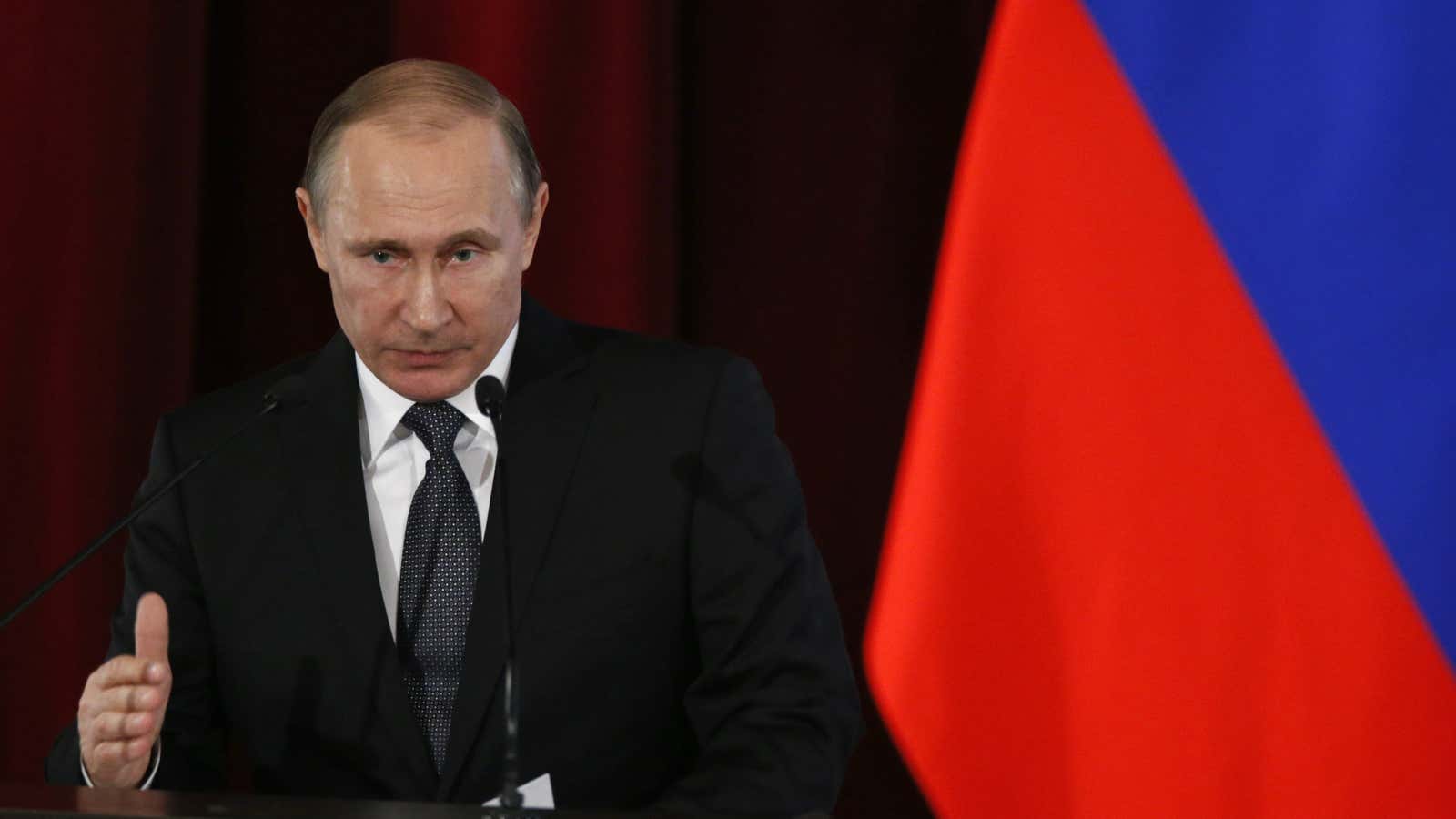Some 72 current or former heads of state, including Russia’s President Vladimir Putin, have been linked with secret offshore deals following a leak of 11 million papers from one of the world’s largest offshore law firms, Mossack Fonseca.
The documents suggesting Putin’s connection, first reported on by The Guardian, do not feature the President’s name. However, they show that two offshore companies used to channel money are owned by one of Putin’s closest friends, concert cellist Sergei Roldugin. A suspected billion-dollar money-laundering ring involves several close Putin associates, and the Guardian reports that documents suggest the Russian leader spent the money his friends made in such deals.
Further documents released from the secretive Panamanian firm suggest Egypt’s former president Hosni Mubarak, Libya’s former leader Muammar Gaddafi, Syria’s president Bashar al-Assad, Pakistan’s prime minister Nawaz Sharif and Iceland’s prime minister Sigmundur Davíð Gunnlaugsson also have connections to secret offshore companies.
Gunnlaugsson has since walked out of an interview with Swedish television company SVT when questioned over his links to tax havens. He has faced calls for a snap general election, effectively a public vote of confidence, from opposition leaders following the leak.
Meanwhile, members of the ethics committee supposed to clean up Fifa have also been connected to offshore firms, which could raise a fresh crisis for the football organization.
Whistleblower Edward Snowden, who currently has asylum in Russia, tweeted reports of the documents following the leak.
The files released are reportedly only the first installment of a leak that’s been called “the Panama papers.” The records were first given by an anonymous source to the German newspaper Süddeutsche Zeitung and were shared by the International Consortium of Investigative Journalists.
Hundreds of journalists from 78 countries have spent a year analyzing and verifying the documents, and will likely reveal further stories in the weeks to come.
Owning an offshore company is not in and of itself illegal. However, it’s a structure often taken advantage of for immoral or illegal dealings.
Shortly following the leak, the Organized Crime and Corruption Reporting Project, which published several stories on the Panama Papers said it had experienced a “severe denial of service attack.”
Update: A spokesperson for Mossack Fonseca said in an email that their industry was not well understood by the public. “The facts are these: while we may have been the victim of a data breach, nothing in this illegally obtained cache of documents suggests we’ve done anything wrong or illegal, and that’s very much in keeping with the global reputation we’ve worked hard to build over the past 40 years of doing business the right way,” added the spokesperson.
This story has been updated with details of pressure on Iceland’s prime minister Sigmundur Davíð Gunnlaugsson to hold a general election.
